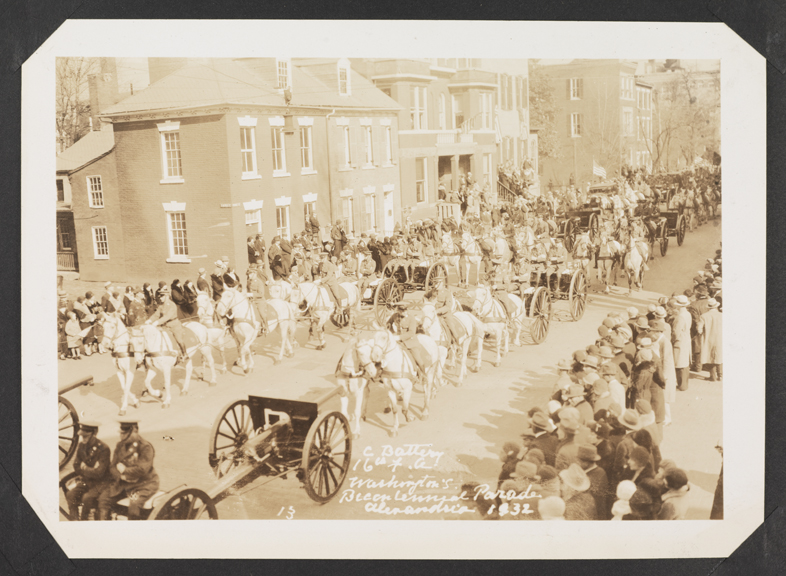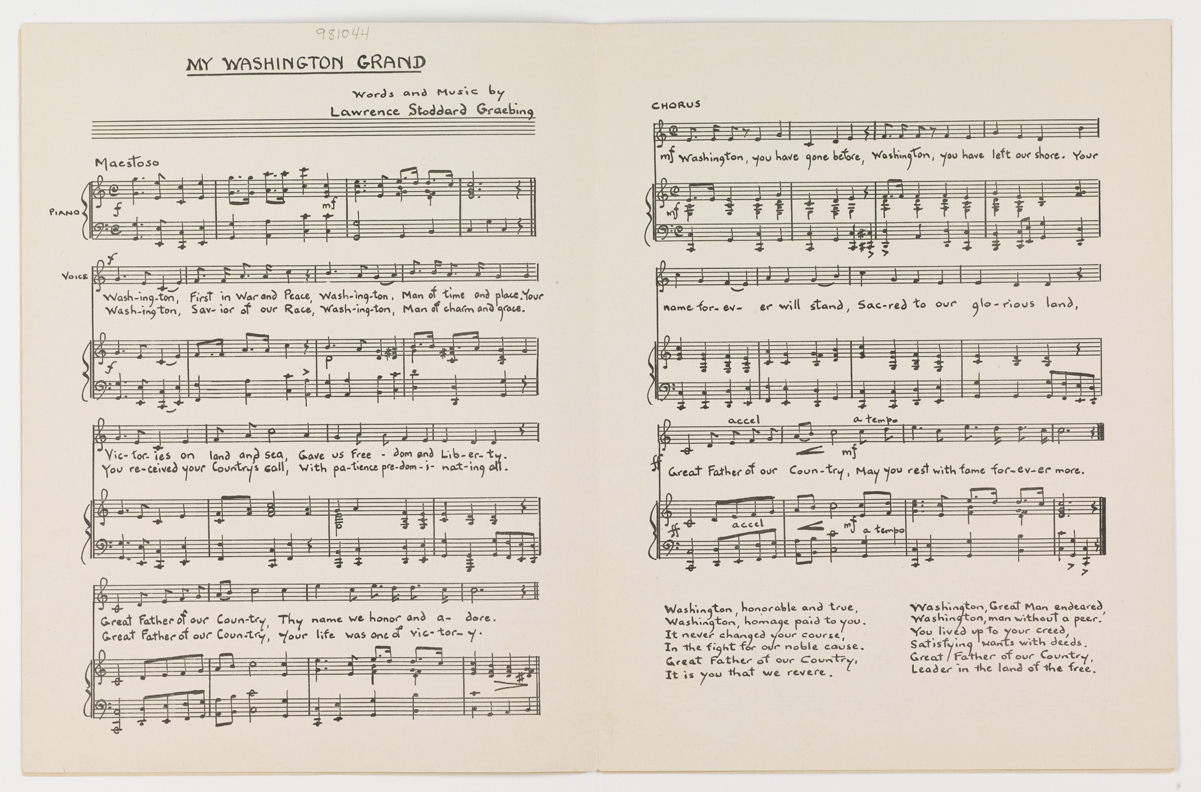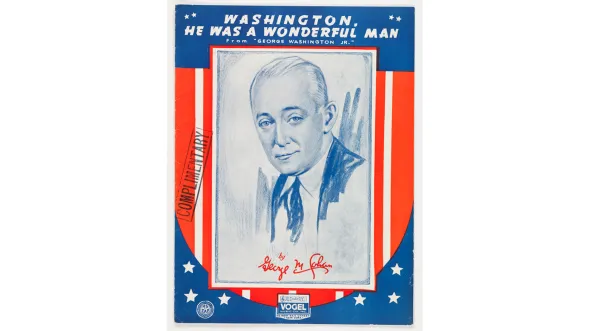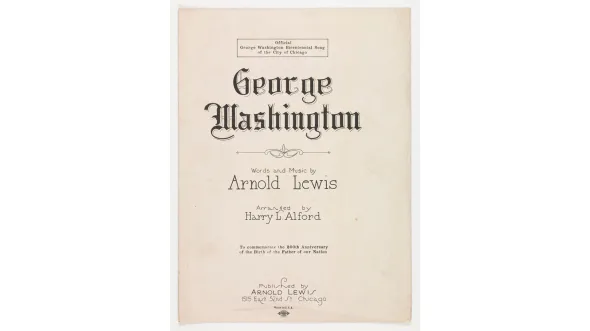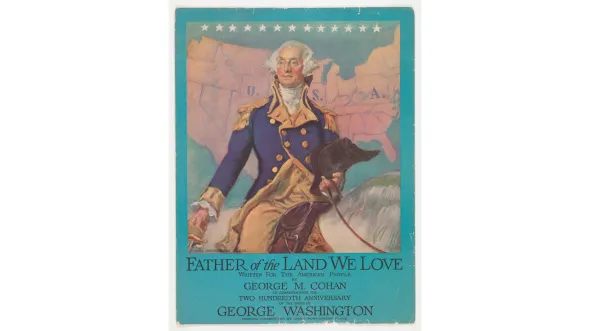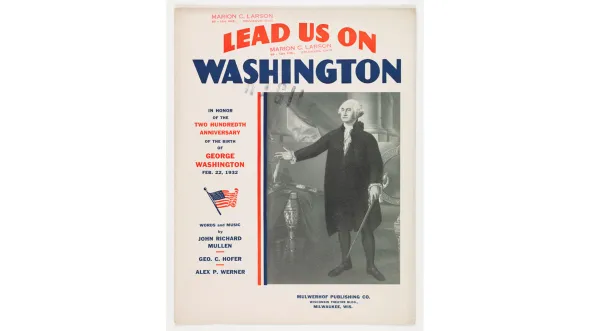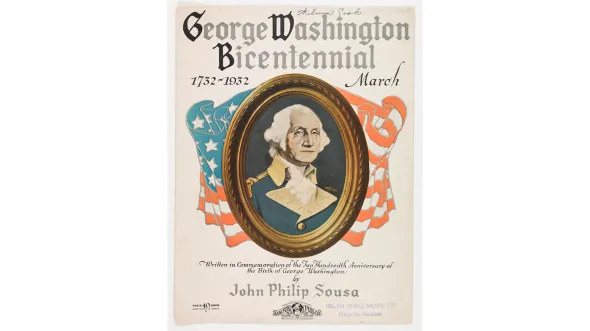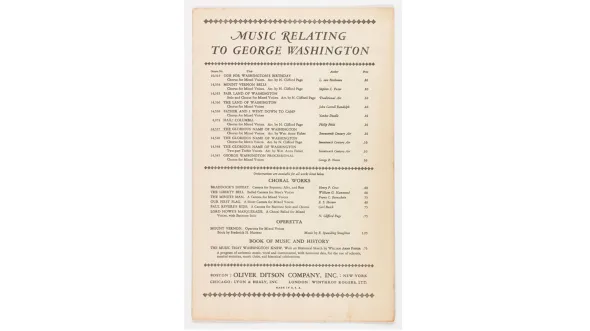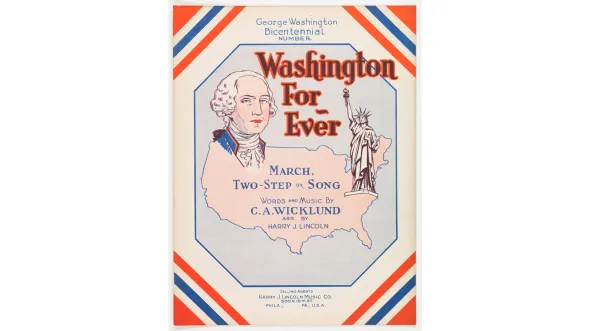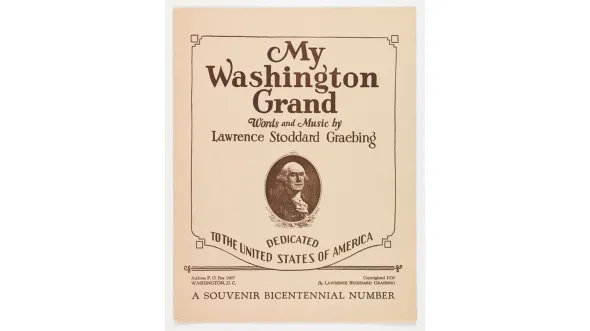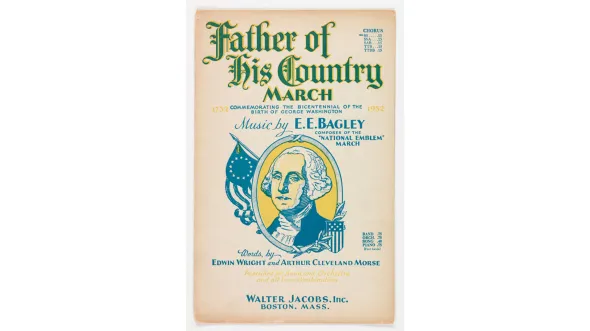Though you might not expect it, 1932 was a big year for George Washington. It marked the 200th anniversary of Washington’s birth and launched a year-long birthday party on a national scale.
Congress officially established the George Washington Bicentennial Commission to oversee and promote the celebratory events. Cities, schools, civic organizations, and private individuals across the nation planned ways to remember Washington as the greatest American hero—from parades and reenactments to essay competitions and special school courses on his significance. With Congress’ support, the bicentennial commission put out a flurry of publications of Washington’s papers and new scholarship on his life. The commission especially encouraged the participation of children in order to promote the importance of Washington to the next generation.
Americans invested so heavily in this celebration for several reasons. For one, the milestone coincided with the height of colonial revivalism—a national infatuation with all things colonial. In 1932, Washington and his era were very much in style. The Great Depression also played a role. During hard times Americans tended to look to the past to give hope for the future. Remembering how Washington overcame adversity inspired many twentieth-century Americans that they could do the same.

